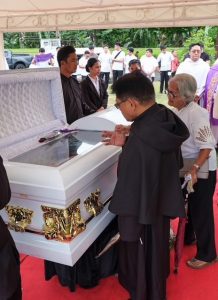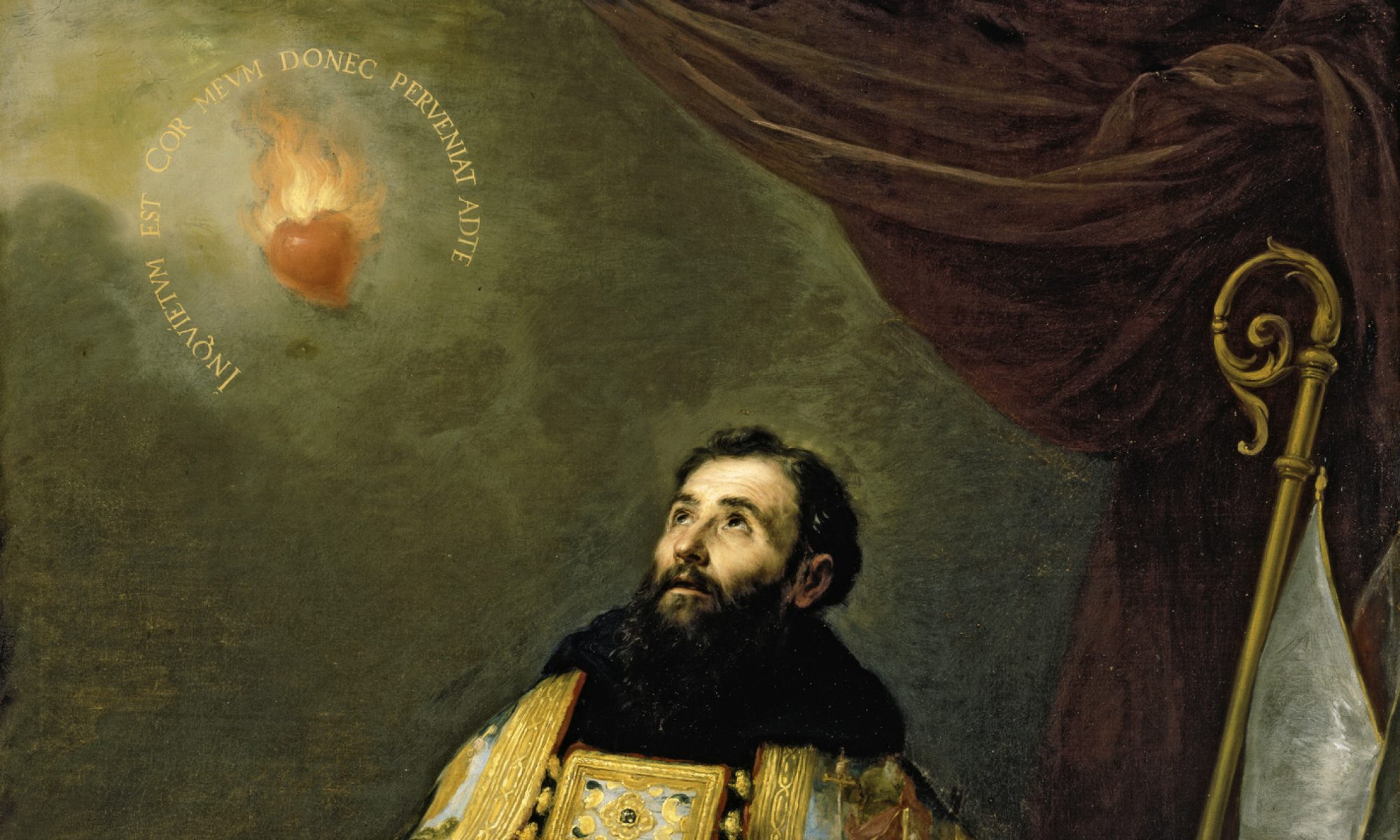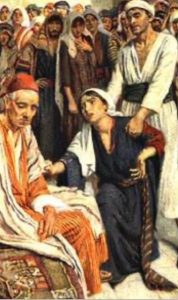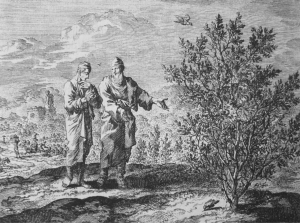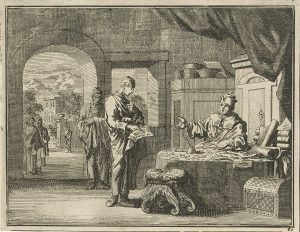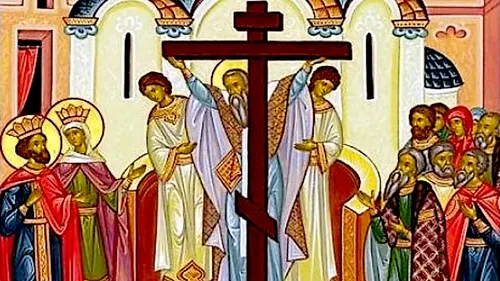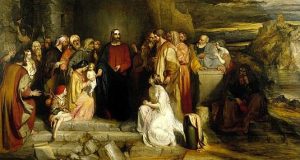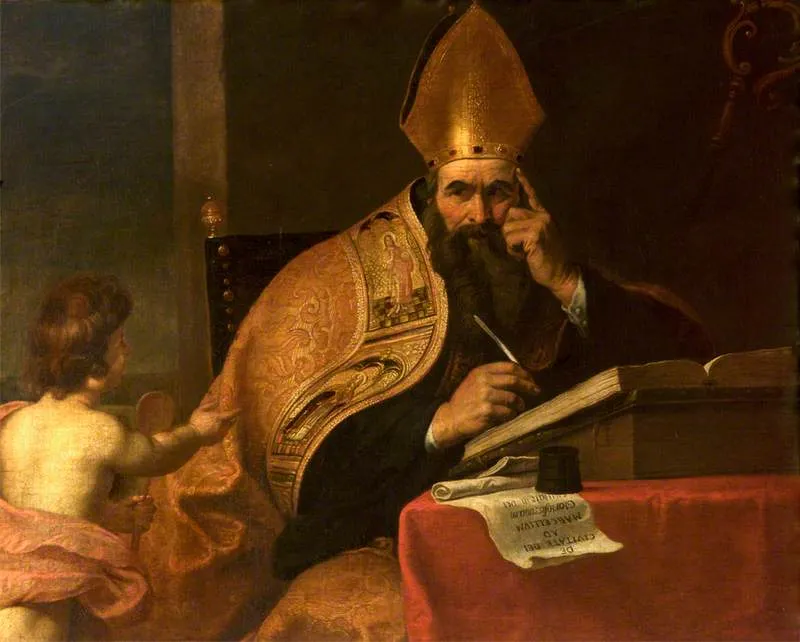Brothers and sisters, our Province of Sto. Niño de Cebu is in mourning as we grieve the loss of one of our senior priests, +Fr. Edgardo Lazo, OSA, who passed away on October 19, 2025, at 7:13 in the morning, after suffering a heart attack while in the hospital. He was my formator during my college seminary days, a priest of deep faith and joyful service. In the light of our religious profession, we believe in the promise of the resurrection and unite ourselves with Christ in that hope. May his soul rest in peace.
As we celebrate this 30th Sunday in Ordinary Time, the Word of God invites us to look deeply into our hearts. The readings today remind us that humility is at the center of our relationship with God. It is the attitude that opens us to grace, makes our prayer sincere, and allows us to see others through the eyes of compassion.
The first reading from the Book of Sirach tells us that God is just and that His heart belongs to those who are humble and oppressed. God listens to their cries and answers their prayers with justice and mercy. He does not show favoritism or partiality. His love is for everyone, but He has a special concern for those who are poor, weak, and forgotten.
In the second reading, Saint Paul speaks with deep peace and confidence as he looks back on his life. He says, “I have fought the good fight, I have finished the race, I have kept the faith.” Even when he was abandoned and alone, the Lord stood by him and gave him strength. Paul’s life shows us that when we remain faithful to God, He never abandons us. Like Paul, we too are called to see our lives not as opportunities for personal gain, but as offerings of love and service to others. Our greatest joy is found in giving ourselves generously, just as Christ did.
In the Gospel, Jesus tells the parable of the Pharisee and the tax collector. The Pharisee stood in the temple and proudly told God all his good deeds. The tax collector, on the other hand, stood at a distance, beat his breast, and simply prayed, “God, be merciful to me, a sinner.” Jesus tells us that it was the tax collector, not the Pharisee, who went home justified in God’s eyes.
This parable teaches us the right attitude in prayer. God looks not at the length of our prayers or the beauty of our words, but at the humility of our hearts. The tax collector’s prayer was powerful because it was honest. He admitted his sinfulness and opened his heart to God’s mercy. And Jesus is encouraging us today that it is never too late to repair our relationships with God and with one another. What matters is the willingness to be changed — to allow humility and gratitude to shape our lives.
Jesus also surprises us by showing the tax collector, a man often despised by others, as an example of true faith. When we come before God, we should come with the same spirit — simple, sincere, and aware of our need for His grace. If our hearts are too full of pride, there is little space left for God to enter. But when we accept our weaknesses and open ourselves to His mercy, grace finds a home within us.
True spirituality means recognizing that God sees what is in our hearts. He listens to the cry of the humble, the poor, and those who seek justice. When we put ourselves on a pedestal, we block the light of God’s love from shining through us. But when we lower ourselves before Him, we are lifted up in His mercy and strength.
Let us remember that God values sincere, heartfelt prayer more than any display of self-importance. What pleases Him is the quiet prayer that comes from love, trust, and humility. When our hearts are simple, God draws near. When we humble ourselves before Him, He lifts us up.
As we continue this celebration, may we ask for the grace to remain humble before God, to serve others with love, and to pray with sincerity. May we be reminded that God listens to the humble and blesses those who trust in Him.
God bless you.
Fr. Arlon, OSA
El Dictado del Corazón:
Trigésimoñ Domingo del Tiempo Ordinario, Año C
- Eclesiástico 35, 12–14. 16–18
- Salmo 33, 2–3. 17–25
- 2 Timoteo 4, 6–8. 16–18
- Lucas 18, 9–14
Hermanos y hermanas, nuestra Provincia del Santo Niño de Cebú está de luto, pues lamentamos la partida de uno de nuestros sacerdotes mayores, el +P. Edgardo Lazo, OSA, quien falleció el 19 de octubre de 2025, a las 7:13 de la mañana, después de sufrir un ataque al corazón mientras se encontraba en el hospital. Él fue mi formador durante mis años en el seminario menor; un sacerdote de profunda fe y servicio alegre. A la luz de nuestra profesión religiosa, creemos en la promesa de la resurrección y nos unimos a Cristo en esa esperanza. Que su alma descanse en paz.
Al celebrar este 30º Domingo del Tiempo Ordinario, la Palabra de Dios nos invita a mirar profundamente dentro de nuestro corazón. Las lecturas de hoy nos recuerdan que la humildad está en el centro de nuestra relación con Dios. Es la actitud que nos abre a la gracia, que hace sincera nuestra oración y que nos permite ver a los demás con ojos de compasión.
En la primera lectura, del libro del Eclesiástico, se nos dice que Dios es justo y que su corazón está con los humildes y los oprimidos. Dios escucha su clamor y responde con justicia y misericordia. No muestra favoritismo ni hace distinciones. Su amor es para todos, pero tiene una atención especial por los pobres, los débiles y los olvidados.
En la segunda lectura, san Pablo habla con profunda paz y confianza al mirar hacia atrás en su vida. Dice: “He peleado el buen combate, he terminado la carrera, he conservado la fe.” Aun cuando fue abandonado y quedó solo, el Señor estuvo a su lado y le dio fuerzas. La vida de Pablo nos enseña que cuando permanecemos fieles a Dios, Él nunca nos abandona. Como Pablo, también nosotros estamos llamados a ver nuestra vida no como una oportunidad para el beneficio personal, sino como una ofrenda de amor y servicio a los demás. Nuestra mayor alegría se encuentra en entregarnos generosamente, como lo hizo Cristo.
En el Evangelio, Jesús nos cuenta la parábola del fariseo y el publicano. El fariseo se puso de pie en el templo y, con orgullo, le contó a Dios todas sus buenas obras. El publicano, en cambio, se quedó a distancia, se golpeaba el pecho y simplemente oraba: “Dios mío, ten compasión de mí, que soy un pecador.” Jesús nos dice que fue este hombre, y no el fariseo, quien regresó a su casa justificado ante los ojos de Dios.
Esta parábola nos enseña la actitud correcta para orar. Dios no mira la longitud de nuestras oraciones ni la belleza de nuestras palabras, sino la humildad de nuestro corazón. La oración del publicano fue poderosa porque fue sincera. Reconoció su pecado y abrió su corazón a la misericordia de Dios. Y Jesús hoy nos anima a recordar que nunca es demasiado tarde para reparar nuestra relación con Dios y con los demás. Lo que realmente importa es nuestra disposición a dejarnos transformar: a permitir que la humildad y la gratitud moldeen nuestra vida.
Jesús también nos sorprende al poner como ejemplo de verdadera fe a un publicano, un hombre despreciado por muchos. Cuando nos presentamos ante Dios, debemos hacerlo con ese mismo espíritu: sencillo, sincero y consciente de nuestra necesidad de su gracia. Si nuestro corazón está lleno de orgullo, queda poco espacio para que Dios entre. Pero cuando reconocemos nuestras debilidades y nos abrimos a su misericordia, la gracia encuentra en nosotros un hogar.
La verdadera espiritualidad consiste en reconocer que Dios ve lo que hay en nuestro corazón. Él escucha el clamor del humilde, del pobre y de quien busca la justicia. Cuando nos ponemos en un pedestal, bloqueamos la luz del amor de Dios que quiere brillar a través de nosotros. Pero cuando nos humillamos ante Él, somos levantados por su misericordia y su fuerza.
Recordemos que Dios valora más la oración sincera y profunda que cualquier demostración de orgullo o autosuficiencia. Lo que le agrada es la oración sencilla que brota del amor, de la confianza y de la humildad. Cuando nuestro corazón es sencillo, Dios se acerca. Cuando nos humillamos ante Él, Él nos levanta.
Al continuar esta celebración, pidamos la gracia de permanecer humildes ante Dios, de servir a los demás con amor y de orar con sinceridad. Recordemos siempre que Dios escucha a los humildes y bendice a quienes confían en Él.
Dios les bendiga.
P. Arlon, OSA
